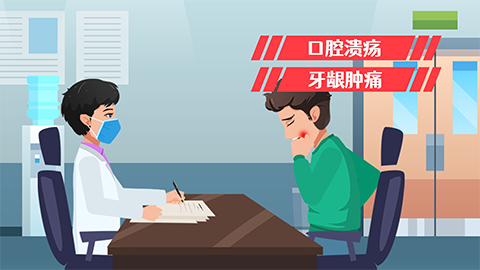What medication should I take for swollen and painful gums?
Generally, gum swelling and pain may be caused by food impaction, inadequate oral hygiene, gingivitis, periodontitis, herpetic gingivostomatitis, and other conditions. It is recommended to seek timely medical advice and use medications such as Amoxicillin Capsules, Metronidazole Tablets, Minocycline Hydrochloride Capsules, Metronidazole Buccal Tablets, and Acyclovir Tablets under a doctor's guidance. Detailed analysis is as follows:

1. Food Impaction
Excessive gaps between teeth or malalignment can easily lead to food getting trapped between teeth, thereby irritating the gums and causing swelling and pain. Medication is generally not required. Daily attention should be paid to cleaning between teeth using tools such as dental floss and interdental brushes to prevent food residue.
2. Inadequate Oral Hygiene
Poor oral hygiene and plaque buildup can cause gingival inflammation, leading to swelling and pain. Medication is generally not necessary. It is important to maintain regular tooth brushing in the morning and evening, use fluoride toothpaste, and visit a dental clinic regularly for professional cleaning.
3. Gingivitis
Gingivitis is typically an inflammation of the gum tissue caused by dental plaque, which may lead to redness and swelling of the gums and pain. It may also be accompanied by symptoms such as gum bleeding and bad breath. Treatment may involve using medications such as Amoxicillin Capsules, Metronidazole Tablets, and Chlorhexidine Acetate Solution under medical guidance.
4. Periodontitis
Periodontitis often develops from untreated gingivitis. If gingivitis is not promptly treated, the inflammation can spread to deeper periodontal tissues. Toxins and enzymes produced by bacteria can damage periodontal tissues, potentially leading to the formation of periodontal pockets and alveolar bone resorption, which can cause swollen and painful gums. Teeth may also become loose or shift. Patients may take medications such as Minocycline Hydrochloride Capsules, Metronidazole Buccal Tablets, and Amoxicillin and Clavulanate Potassium Tablets according to medical advice.
5. Herpetic Gingivostomatitis
Herpetic gingivostomatitis is primarily caused by infection with the herpes simplex virus. After infecting the oral mucosa, the virus can form clusters of small blisters on the gums and oral mucosa, which rupture to form ulcers, possibly causing gum redness, swelling, and pain. It may also be accompanied by symptoms such as fever and headache. Patients may use medications such as Kangfuxin Solution, Acyclovir Tablets, and Valacyclovir Hydrochloride Tablets as advised by a doctor.
In daily life, it is important to maintain good oral hygiene, undergo regular oral examinations, and promptly detect and address oral issues. Additionally, maintain a balanced diet and avoid excessive consumption of sweets and acidic foods to reduce irritation to the gums.







